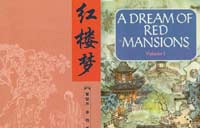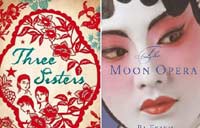More is less as China seeks to promote its literature
Updated: 2014-05-20 09:06
By Cecily Liu in London (China Daily)
|
|||||||||||
The picture of communities that the 59-year-old author has painted through his books offers a perspective on rural China that was less familiar to both Chinese and Western readers in earlier times. An example is Mo's 1987 novel Red Sorghum. In the book, he describes a village in northeastern China under Japanese occupation, as being full of barbarous warlords and lusty peasants.
"None of the characters are typical heroes. They are all bandits and cowards. He (Mo) looks at individuals and their strengths. He enlarges and puts them under the microscope, and adds things that make them almost grotesque and absurd, but makes you think about how history is told."
This style of writing gives Mo's characters more depth and even caught the attention of the Nobel prize committee, Hockx says. The top award, however, hasn't been able to generate worldwide interest in Chinese literature to the level that was expected mainly because more needs to be done to promote Chinese literature abroad.
Hockx feels a greater number of Chinese books need to be translated into foreign languages and more Chinese authors need to participate in Western literary festivals.
The Chinese government, according to him, is likely to fund new translations of Chinese classics, as some of the previous translations were done by the 19th century Westerners who may have interpreted them in a slightly different light.
In order to promote its soft power effectively, China would have to persuade the West to look at it in a way that is closer to its own views of itself, Hockx says. The attempt would be to break stereotypes about China and the simplification of narratives that the Western media often builds.
But it is important for China not to push its message too hard. "As China becomes more powerful, so will its culture. That will happen. The more you push it, the more you come across as lacking in confidence," Hockx says.
He says one key difference between China and the West lies in society's approach to literature. There's been a surge in book and author clubs in China owing to frequent public exchanges. This is in contrast to Western post-modern literature, often exclusive and hard to understand.
Related: Learning Chinese language helps Americans know different world
Related Stories
West turns new page in thinking on Chinese literature 2013-08-03 07:35
New novel sparks interest in dialect literature 2013-06-12 10:29
Mo Yan promotes Chinese literature 2013-05-22 09:59
Haven of Literature 2013-05-20 09:38
Literature&Talks 2013-04-12 15:36
Today's Top News
Concerns grow as real estate cool-down continues
China, Russia naval drill focuses on maritime threat
Deadly flooding hits Balkans
China halts exchanges with Vietnam
S Korea to disband coast guard
UN chief saddened by Turkey's mine tragedy
Hanoi blamed for anti-China riots
Hypnotherapist offers stress relief
Hot Topics
Lunar probe , China growth forecasts, Emission rules get tougher, China seen through 'colored lens', International board,
Editor's Picks

|

|

|

|

|

|







